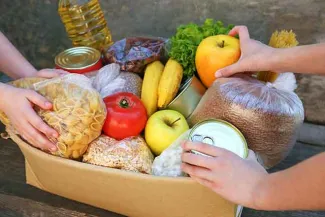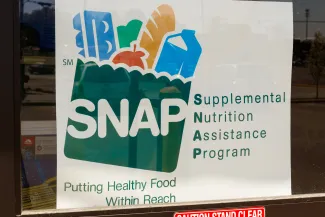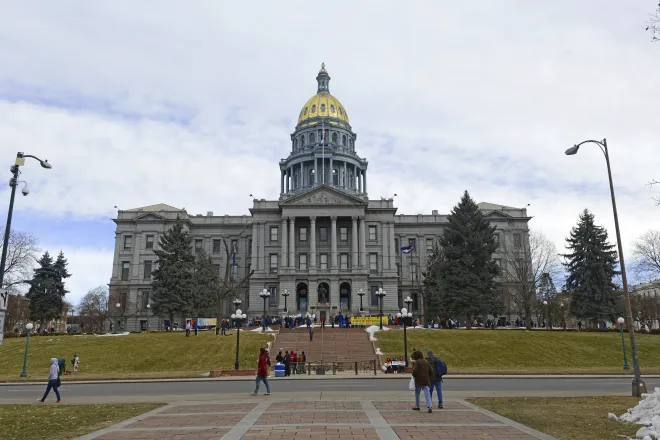
Colorado boosts WIC, food pantries amid D.C. stalemate
Colorado is moving forward with stop-gap funding for food assistance programs as the longest U.S. federal shutdown drags on.
The state’s Joint Budget Committee approved two emergency appropriations requests from Governor Jared Polis.
One funded up to $10 million in emergency General Fund support for food pantries and banks throughout the state, while the other allowed up to $7.5 million in previously approved funding to maintain Colorado operations for the Special Supplemental Nutrition Program for Women, Infants and Children.
In October, only $775,000 of the appropriated WIC funding was utilized. That leaves nearly $7 million still available.

© iStock - Mukhina1
Members of the Joint Budget Committee said they felt they had to step up to protect Coloradans.
“Regardless of what’s happening in Washington, Colorado is stepping up to keep families fed and kids healthy,” said the committee’s Chair Jeff Bridges, D-Arapahoe County. “This is what responsible budgeting looks like. Focusing on results, not rhetoric, and doing what’s right for the people we represent.”
This funding comes as concerns grow about the status of funding to programs like WIC or Supplemental Nutrition Assistance Program. Both funded by the U.S. Department of Agriculture, those programs provide food subsidies, also known as food stamps, to roughly 42 million Americans nationwide.
Friday, the Trump administration asked an appeals court to pause a lower court ruling that required the government to fully fund SNAP benefits.

© jetcityimage - iStock-958835100
Monthly, approximately 617,000 Coloradans receive at least $120 million in SNAP benefits. In 2024, almost one million individual Coloradans received SNAP.
“These emergency actions will help ensure that parents, children, older Coloradans, and Coloradans with disabilities continue to have access to the meals and nutrition they need, even as federal programs are disrupted,” said Lt. Governor Dianne Primavera. “Together, we’re making sure no Coloradan is left behind.”
In October, Colorado Attorney General Phil Weiser joined 22 other attorneys general in suing the U.S. Department of Agriculture and U.S. Agriculture Secretary Brooke Rollins.
That lawsuit sought to require the release of USDA “contingency reserve funds” to keep SNAP operational past Nov. 1, which is when those taxpayer-funded benefits were set to be paused. While a federal court ruled that $5.25 billion must be used to partially fund SNAP for November, there are still some delays expected in the release of those funds.
Weiser still declared this a legal win against the Trump administration.
“No one should go hungry or experience financial hardship because of political gridlock in Washington, D.C. or an abuse of power by the Trump administration,” he said.
Both Republicans and Democrats are passing blame for the shutdown, which is the first since 2018. It is also the longest in U.S. history.
Republicans point out that, though they control both the U.S. House and Senate, they need seven Democrats in the Senate to meet the 60-vote requirement to pass a budget and end the government shutdown.
So far, only three Democrats have crossed the aisle, while others vote no to passing a continuing funding resolution. Two Colorado Democrats - U.S. Senators Michael Bennet and John Hickenlooper - continue to vote against reopening the government.

















